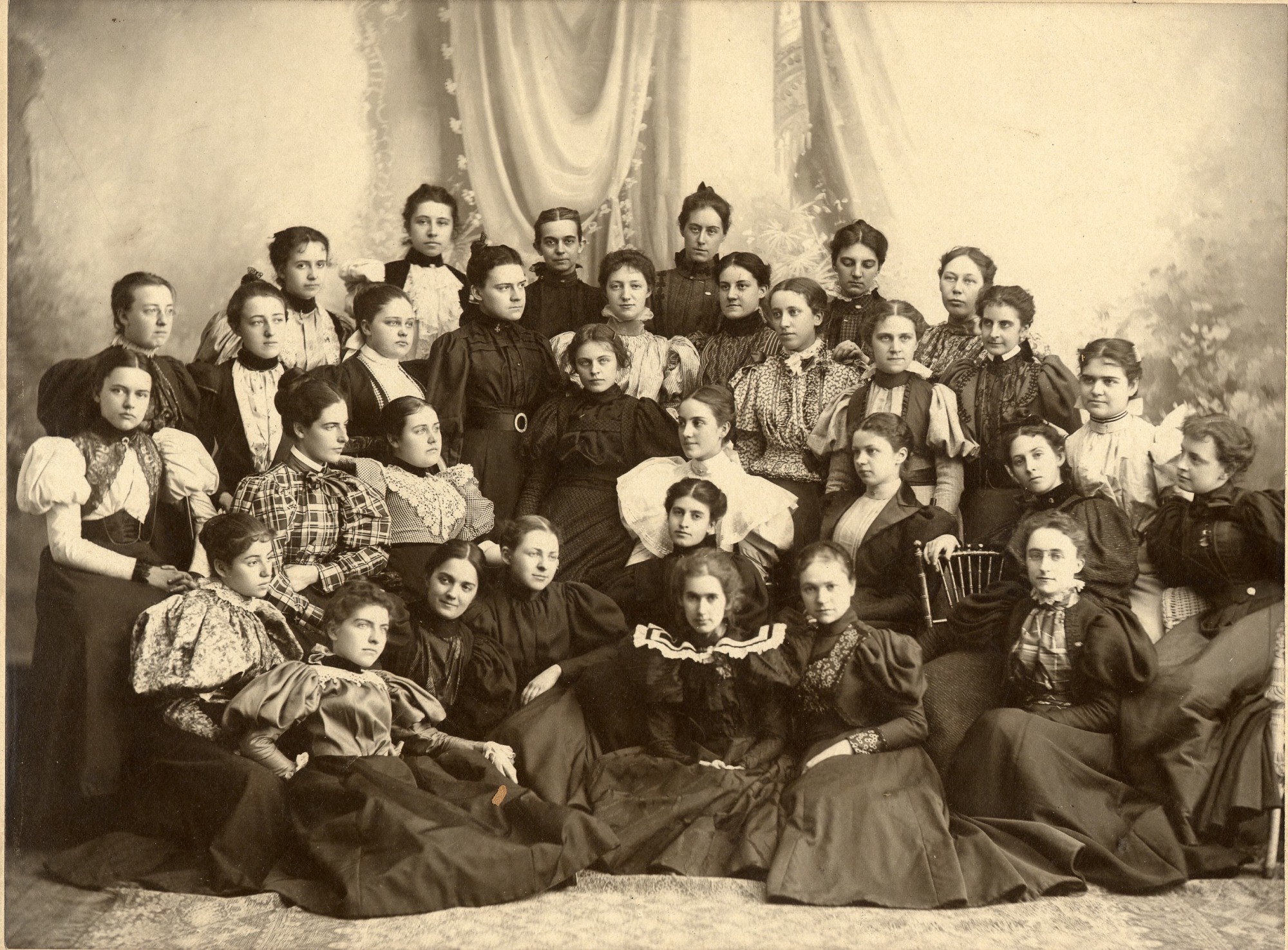
The Pembroke Center began documenting women’s history at Brown nearly at its inception. In 1982, Founding Director Joan Wallach Scott, the first Chair of the Pembroke Center Associates (now known as the Friends of the Pembroke Center) Christine Dunlap Farnham ’48, and Brown Corporation members Ruth B. Ekstrom ’53 and Nancy L. Buc ‘65 questioned the University’s handling of historical records related to the merger of Pembroke and the men’s college. Due in part to this concern, the group identified a need to collect archives and began by gathering oral histories from notable alumnae. The resulting batch of interviews would create the first special collection curated by the Pembroke Center – known as Brown Women Speak until 2019 when it was renamed the Pembroke Center Oral History Project. The new name emphasizes both the project’s connection to Pembroke College and its inclusion of oral histories by non-binary and trans people.
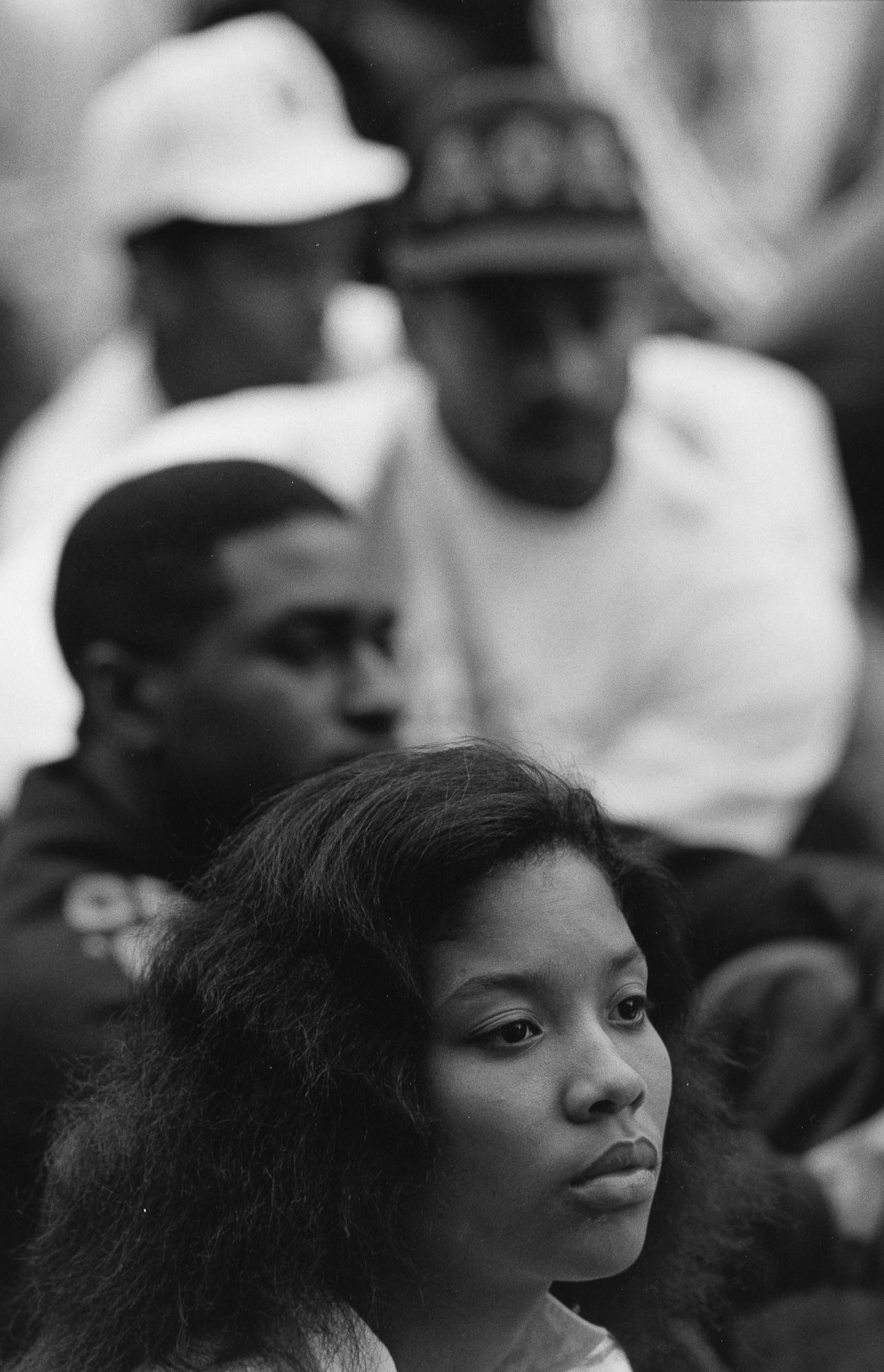
In 1987, five years after the oral history project was launched, the Pembroke Center and the Brown University Library established a permanent women’s history archive at Brown. In subsequent years, an effort was undertaken to identify women’s history buried or mislabeled within the John Hay Library collections, resulting in the Research Guide to the Christine Dunlap Farnham Archive published in 1989. Between 1990 and 2002, the Pembroke Center’s archival initiative focused on documenting women’s history through oral interviews and was staffed by piecemeal, project, and part-time staff as well as by full-time Pembroke Center employees who contributed percentages of their time to maintaining the project.
In 2001, the Pembroke Center lost a closely affiliated scholar that would change the trajectory of the Pembroke Center archives. The notable academic Naomi Schor, who had most recently served as the Benjamin F. Barge Professor of French at Yale University, suffered an untimely death. During her academic career, she had been one of the first in her field to approach her research through the lens of gender. In response to this tragic event, Elizabeth Weed, Director of the Pembroke Center from 2000-2010, Joan Wallach Scott, other leadership from the Pembroke Center, and Schor's family realized that Schor would have wanted her papers to go to Brown, where she had been the Nancy Duke Lewis Professor (1985-1989) - a position designated for a senior scholar in any discipline with significant scholarly interest in women’s studies. As a result, Weed and others conceptualized the idea to develop an archive for Schor's papers and for the papers of other feminist theorists at the Pembroke Center and to house the collections and provide access to them through the John Hay special collections library at Brown University.
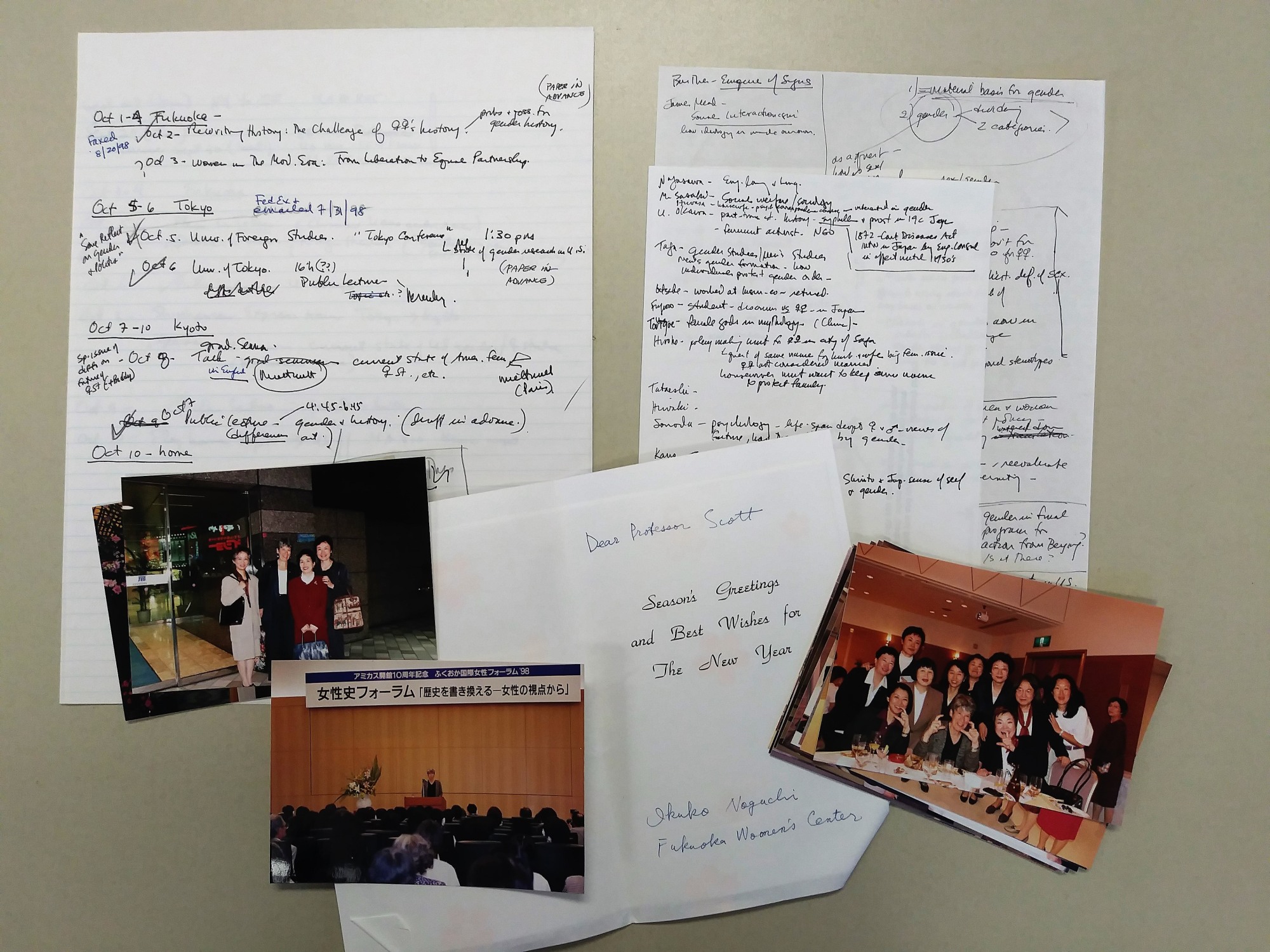
In 2003, the Pembroke Center established the Feminist Theory Archive and began curating special collections by and about influential feminist theorists who placed gender and sexuality at the center of their theoretical study. The mission of the archive aims to document the lives and work of groundbreaking scholars who had transformed the landscape of higher education through their writing, teaching, institution building, and activism. Since 2003, the collection has grown and now includes the papers of theorists across disciplines including feminist theorists and other scholars of difference with specializations in queer theory, Black feminist theory, global feminisms and affect theory related to gender and sexuality studies.
In 2007 and again in 2025, the Pembroke Center reaffirmed its partnership with the John Hay Library to ensure that women’s history was not being lost and that new women’s history collections were being preserved. According to the agreements, the Pembroke Center would identify, process, and manage the collections, while the Hay Library would provide cataloging technologies, research services, and long-term storage. All of the collections curated by the Pembroke Center would be co-stewarded with the John Hay Library once they became available for research. In approximately 2010, nomenclature surrounding the archives initiative evolved to describe the Christine Dunlap Farnham Archive and Feminist Theory Archive as unique entities that are known collectively as the Pembroke Center Archives. In 2023, nomenclature for the Archives changed again. With advice and consent from the Pembroke Friends and to promote intuitive research, the Pembroke Center Archives ceased using “Christine Dunlap Farnham” to describe an area of collecting. Instead, the Pembroke Archives describes its collecting focus in four areas: gender and sexuality at Brown, feminist activism in Rhode Island, feminist theory and thinking, and gender, sexuality, and state repression.
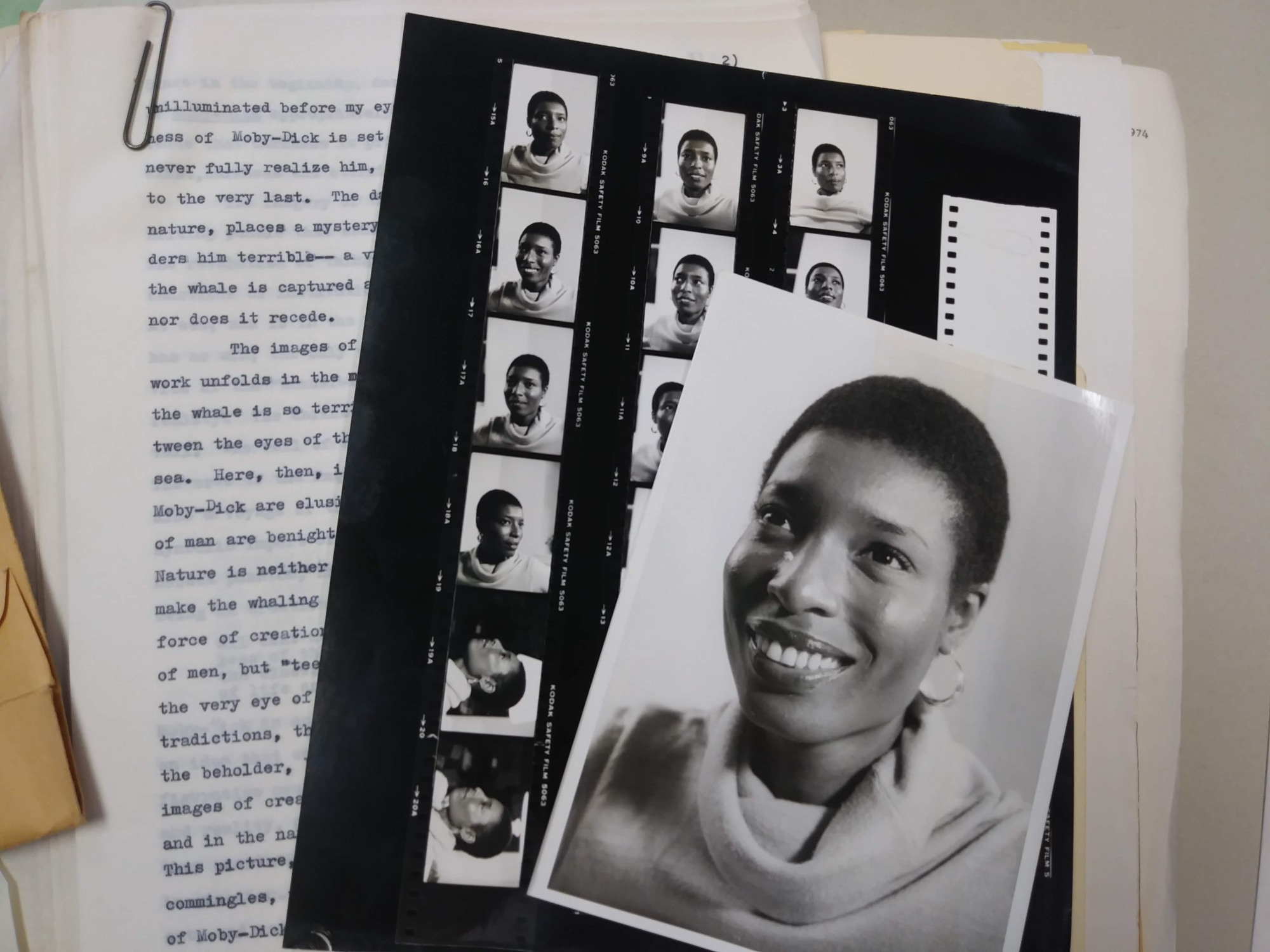
To support the partnership between the Pembroke Center and John Hay Library and to stabilize staffing for the archives, the Friends of the Pembroke Center raised an endowment to create a professional Pembroke Center Archivist. Nancy L. Buc ‘65 LLD '94hon spearheaded the campaign, and upon its successful completion the position was named after her.
In 2016, the Pembroke Center hired its first full-time and permanent Nancy L. Buc ‘65 LLD'94 hon Pembroke Center Archivist and in 2019, Pembroke Center Advisory Council member Shauna M. Stark ’76 continued the alumnae/i commitment to the Pembroke Center Archives by supporting an assistant archivist position.
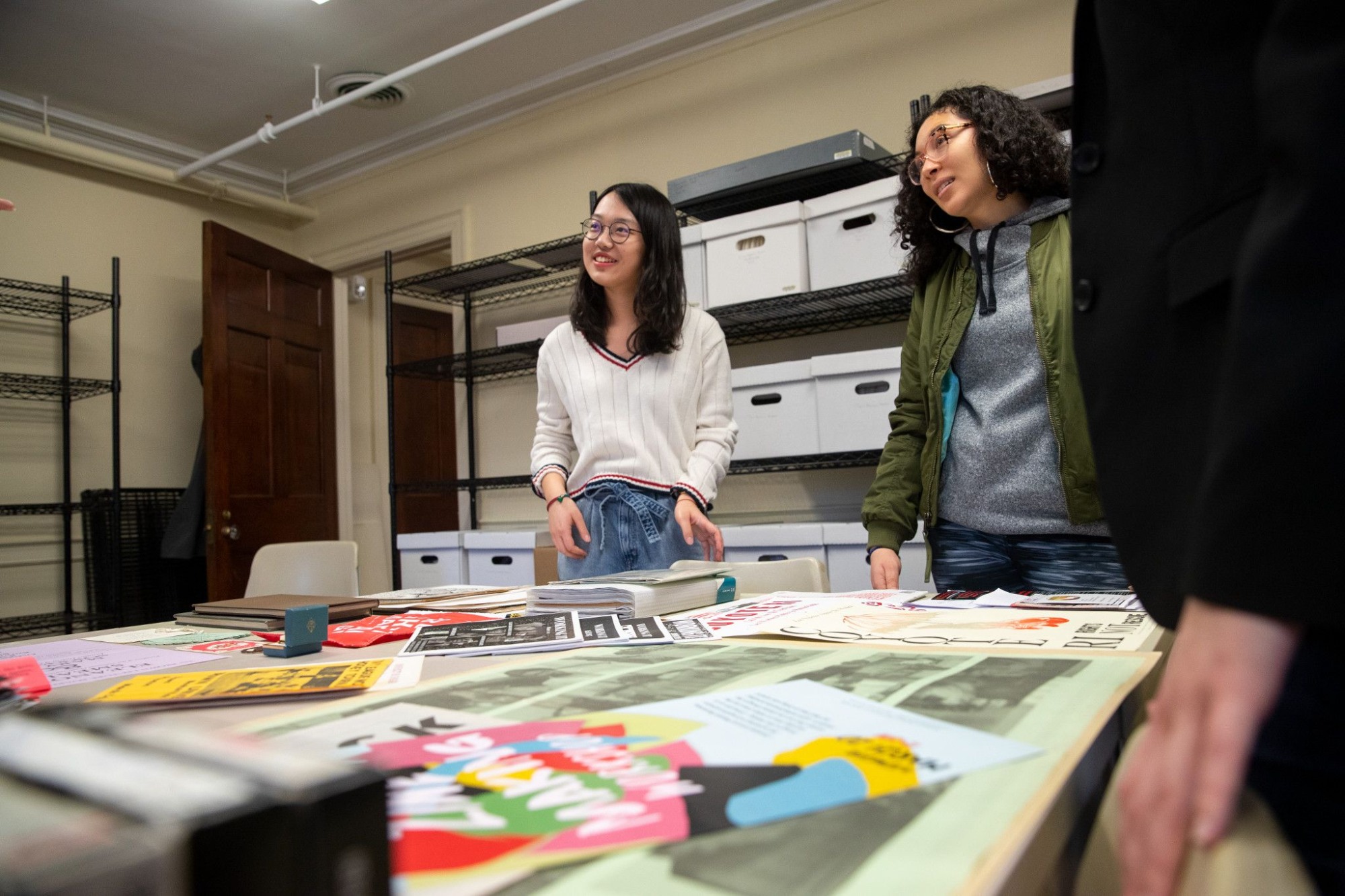
Today, the Archives continue to be managed and curated by the Nancy L. Buc ’65 LLD'94 hon Pembroke Center Archivist. The position serves as chief advocate for the archives, working with donors and Brown leadership to steward the initiative and to identify and pursues new collections for the archives. The assistant archivist serves as the lead technical specialist processing and describing collections and managing the Pembroke Center Oral History Project. The Archives added a full-time processing archivist in 2025. After more than 40 years of operating from Alumnae Hall, the Pembroke Center Archives moved into the ground level Pembroke Hall in 2025 following an extensive renovation. This move marked the achievement of a long term goal of the Pembroke Center Archives.
For more information on the history of women's history archives in the United States, please see "Women's Archives and Women's History," Joan Wallach Scott’s comments on the dedication of the Christine Dunlap Farnham Archive, October 10, 1986.